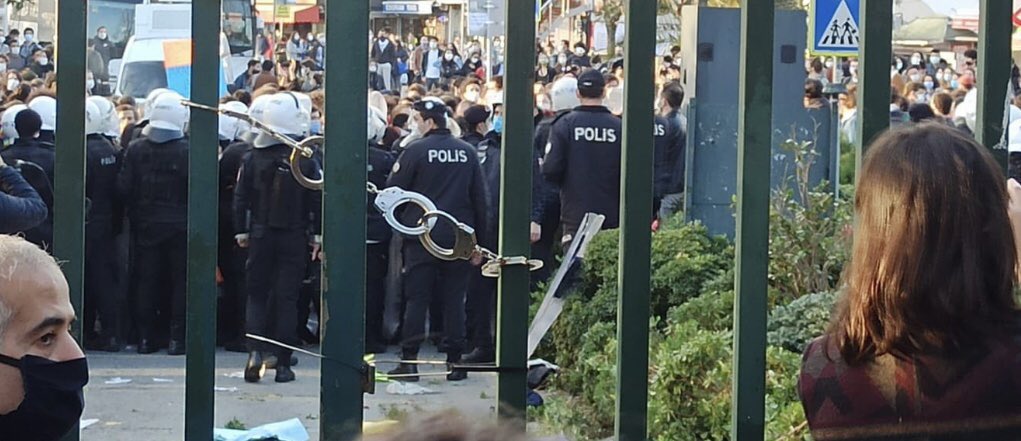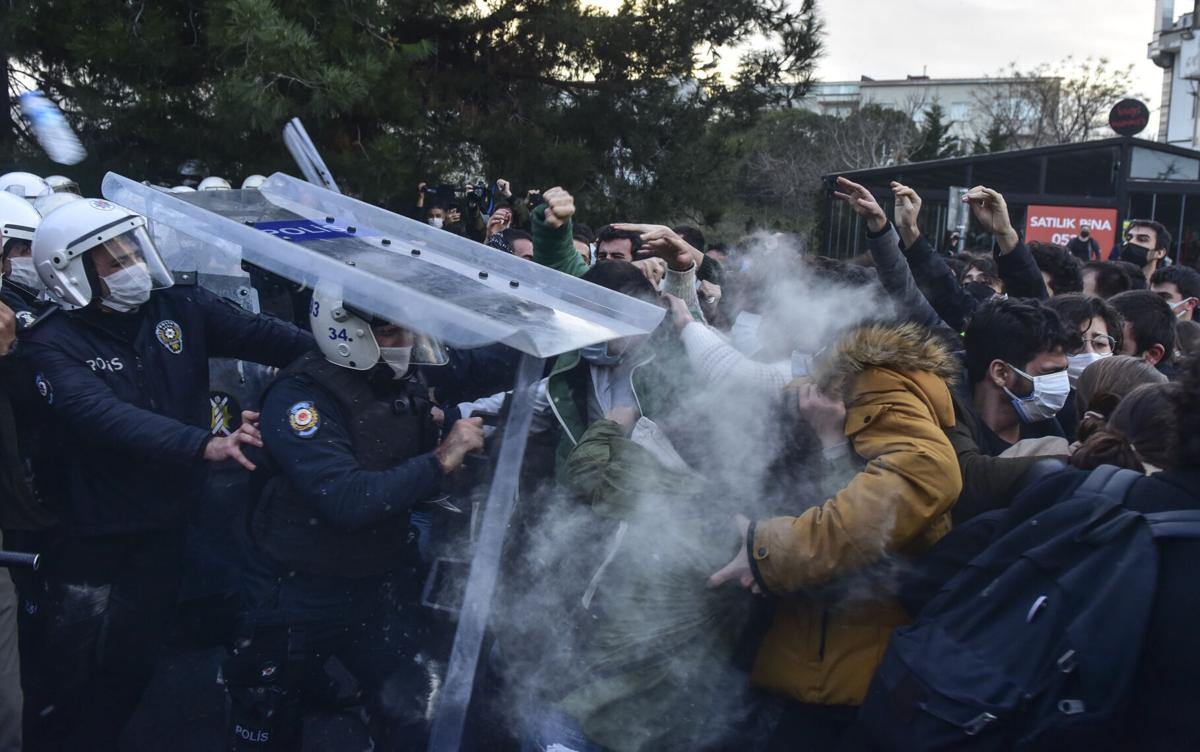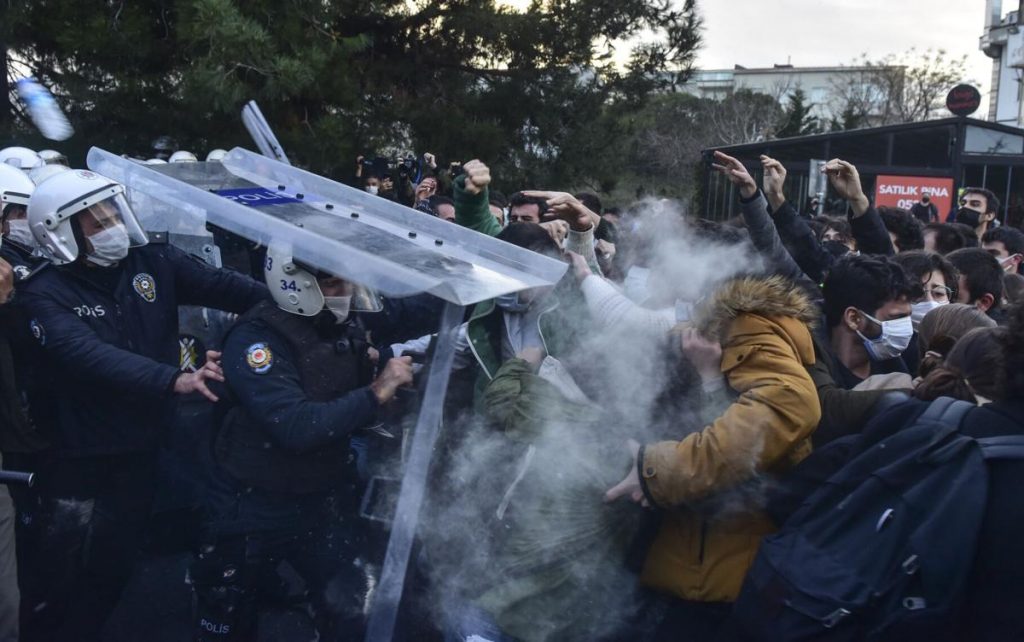
Since the new year, Istanbul’s University campuses have become a battleground of violent clashes between students and police. The protests were sparked by President Tayyip Erdogan’s appointment of Melih Bulu, an active member of Turkey’s ruling AKP party, as new rector of the prestigious Boğaziçi University by presidential decree.
This is the latest of 27 presidential appointments to rectoral positions in the past year. Throughout the country, nepotism and corruption are a worsening trend: unilateral executive appointments are becoming more and more commonplace, with AKP cronies being given the top spots in universities, embassies, and banks.
Notably, this is the first such appointment of a rector, with no previous ties to a university, since Turkey’s 1980 military coup, which saw the state-sanctioned murder of thousands of communists, students and other democratic forces in an effort to crush popular resistance to the government. That this dark history seems to be repeating itself is a troubling indication of the direction in which Erdogan, armed with recently expanded presidential powers, is taking Turkey.
Police have responded to the current protests with nothing short of brutality; employing tear gas, rubber bullets and water cannons on crowds of peaceful protestors. Over 40 students have been detained and raids conducted on their homes. The Turkish state, recognising the revolutionary potential of these protests, are using every means of repression in its arsenal to crush their democratic spirit. The government’s attitude was epitomised in a widely circulating photograph from the protests: a pair of handcuffs locking shut the gates of Boğaziçi.

When asked whether the protests would affect his decision on the appointment and whether he would meet with representatives of the student bodies, the President remarked: “This is something involving terrorists. Those who have joined [the protests] are not students.” The branding of popular democratic forces as “terrorists” is a common tactic of members of the ruling AKP-MHP coalition, despite their own proven links to right-wing terror.
Erdogan’s recent actions have been decried by staff and students alike as an attempt to consolidate his grip on the education system, by installing his cronies to control what have often been powerful bases of dissenting thought in the country. But these recent protests, in which revolutionary and communist elements of the youth have played such a prominent role, have proven to be about much more than one nepotistic appointment. The resistance at Boğaziçi is just one front of a wide struggle against the AKP’s efforts to promote its reactionary agenda and stifle dissent in Turkey’s independent democratic institutions.
Peter Stoddart, YCL Student Officer, commented, “Throughout history, student movements have often been at the forefront of campaigning against autocratic regimes. The protests at Boğaziçi University in Turkey this week continue in this trend. First and foremost, these protests are crucial in the fight against Erdogan’s continued and unrelenting fight to consolidate power in the hands of the ruling AKP. In addition, for us in Britain, they demonstrate the power and importance of a militant and politicised student movement. The acts of demonstrators at Boğaziçi this week show us what we need to do to build the British student movement into such a force.”
Shea Stewart




